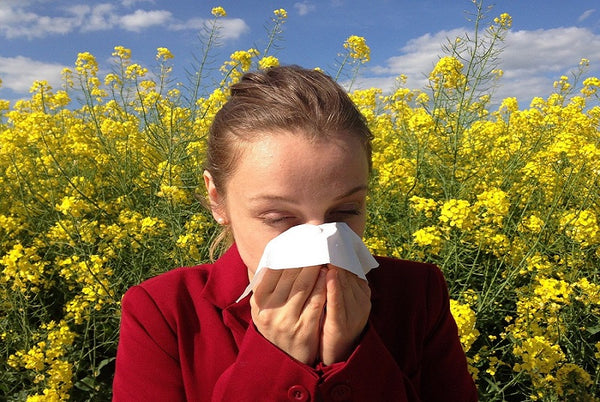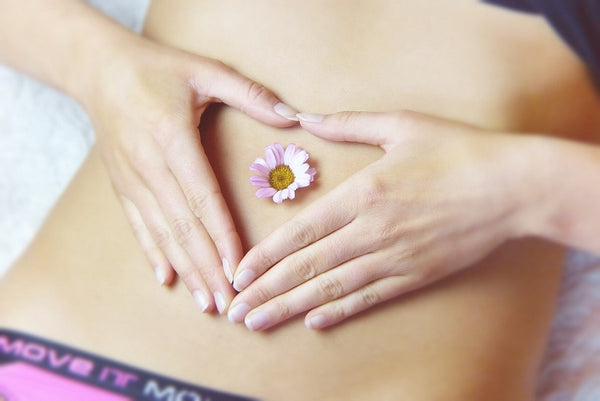Painful Intercourse: Symptoms, Causes & Treatment
Why is SEX painful sometimes?
Painful sex is also called dyspareunia. It is not a disease but rather a distressing symptom. Oftentimes, it can be the result of a hormonal imbalance, an emotional issue, or a physical condition associated with the genitalia or sexual organs.
It is important to diagnose the cause of painful intercourse because relief can often be dependent on managing the underlying cause, such as polycystic ovarian syndrome (PCOS) and endometriosis. Treating PCOS, endometriosis and other conditions such as insulin resistance (which can influence PCOS) can minimize the severity of the symptoms and increase overall wellbeing.
Symptoms and causes of painful intercourse
The symptoms associated with dyspareunia can vary in intensity from mild to severe and can present differently with each woman. Symptoms may include:
- Burning, aching, or tearing pain
- Deep pain with thrusting
- Pain during sex
- Pain with every penetration (including nonsexual contact)
- Pain only with certain positions
Possible causes of dyspareunia include:
- Polycystic ovarian syndrome
- Endometriosis
- Varicose veins in the pelvis
- Scars from an episiotomy
- Use of certain medications
- Vaginal dryness
- Vaginal infection
- Ectopic pregnancy
- Insufficient vaginal lubrication
- Thinning and dryness of the vaginal wall
- Bladder or other urinary tract disorders
- Cancer in the sex organs or the pelvic region
- Allergies to spermicides or to latex in condoms
- Adenomyosis
- Sexually transmitted infections
- Intercourse too soon after surgery or childbirth
- Menopause
- Pelvic inflammatory disease
- Irritable bowel syndrome (IBS)
- Uterine prolapse
- Uterine fibroids
- Haemorrhoids
- Misplaced ovary
- Scars from surgeries in the pelvic area
- Ovarian cysts
- Emotional factors
Vaginismus (vaginal spasms)
Penetration may cause pain because of spasms in the muscles in the vagina. This can cause symptoms such as tightness and extreme pain.
- Common causes of vaginismus:
- Endometriosis
- Vaginal infections
- Tight pelvic floor muscles
- Pelvic trauma
- Emotional stress (some things that may help with this stress can be pelvic floor massage, counselling and relaxation techniques)
How painful intercourse can be treated
Treatment of painful sex revolves around addressing the underlying cause of these symptoms. However, here are a few things that could provide some relief:
Counselling: Individual, couples or sexual intervention can be very effective when there is a psychological element to your condition such as stress, previous sexual abuse, or poor self-confidence.
Changing positions or techniques: Sometimes pain during sex can be due to the time of the month, certain sexual positions, or lack of foreplay. Trying a less invasive position can create shallow penetration and minimize the pain.
Pleasure enhancers: Using devices such as Ohnut and Eva can help with penetration pain. Keep in mind intimacy can be fun without penetration, communicate with your partner and find other ways to foreplay and be intimate.
Increasing lubrication: Using a personal lubricant or organic oil like coconut oil can greatly help with painful sex.
Supplements: Plant-based oestrogens such as sea-buckthorn and flax seeds can assist with vaginal dryness which may be contributing to the pain.
Pelvic floor physiotherapy: This is a gentle soft tissue massage in the vaginal and pelvic region designed to teach relaxation and pelvic floor exercises.
Balancing hormones for better sex
If dyspareunia is caused by PCOS or endometriosis, Happy Hormones can be an excellent way to help. If you try balancing your hormones by prescribing synthetic hormones, it’s a never-ending circle and it’s almost impossible to balance hormones this way.
It is vital to understand that hormones are controlled in the body via a centre in the brain called the hypothalamic pituitary adrenal (HPA) axis. This mechanism is common to all women and adapts with age. Happy Hormones (HH) works directly on this mechanism so it does not matter if you are a teenager or are menopausal – the body balances your hormones just the same.
There are added ingredients in HH that support other functions such as that of the liver, bowels, pancreas, adrenals, and sleep. However, this main mechanism is why women of all ages who experience some sort of imbalance get such great results with HH. They can even get better results if they also follow the 8-Week Program.
Healthy lifestyle changes such as regular exercise and taking supplements like chromium and the herbs Berberine and Gymnema can also help with insulin resistance. When you address the symptoms of PCOS and endometriosis, inflammation lessens and pain after sex is significantly reduced.
REFERENCES
Petra S. Larmo, Baoru Yang, Juha Hyssälä, Heikki P. Kallio, Risto Erkkolan. Effects of sea buckthorn oil intake on vaginal atrophy in postmenopausal women: A randomized, double-blind, placebo-controlled study. Maturitas. 2014; Nov 79(3):316-321
https://doi.org/10.1016/j.maturitas.2014.07.010
Lawrence J. Wurn, Belinda F. Wurn, and Amanda S. Roscow. Increasing Orgasm and Decreasing Dyspareunia by a Manual Physical Therapy Technique. Medscape General Medicine. 2004;6(4):47.
https://www.ncbi.nlm.nih.gov/pmc/articles/PMC1480593/























